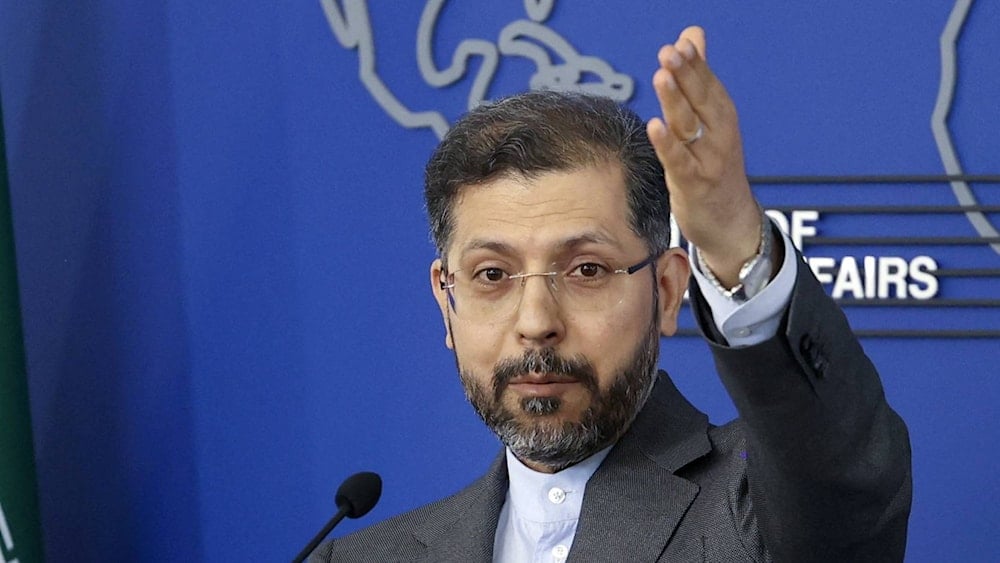Triggering snapback wastes EU's last card: Iranian deputy FM
Iran warns Europe has no right to trigger the snapback mechanism, saying such pressure could force Tehran to respond strongly amid nuclear tensions.
-

Iran's then foreign ministry spokesman Saeed Khatibzadeh speaks during a press conference in Tehran, on 11 April 2022 (AFP)
Iranian Deputy Foreign Minister Saeed Khatibzadeh stated that Europe is not entitled to trigger the snapback mechanism, warning that this form of strategic pressure might compel Iran to take drastic measures.
Iranian Deputy Foreign Minister Saeed Khatibzadeh stated that activating the "snapback mechanism" would mean Europe is squandering the last card it holds in an interview with the German newspaper Frankfurter Allgemeine, adding that the E3 nations have no right to activate the mechanism, a position also supported by Russia and China.
He affirmed that any future negotiations for Iran would be like "armed negotiations" because Tehran does not trust Washington, warning that exerting pressure on Iran is a "strategic mistake that could push it to make difficult decisions."
War on Iran eroded trust in negotiations
Khatibzadeh also noted that the recent military aggression against Iran has eroded trust in the negotiation process to the point of being almost non-existent, adding that a return to the table is only possible for talks that yield tangible results and are accompanied by a complete cessation of hostilities.
The Iranian deputy foreign minister pointed out that "Tehran will not accept being an exception in international law and insists on its right to enrichment under the Non-Proliferation Treaty," commenting that "the level and scope of enrichment may be negotiable, but the right itself is non-negotiable."
Khatibzadeh disclosed that a significant portion of Israeli operations against Iran occurs within the context of an ongoing intelligence war.
Khatibzadeh's remarks come amid escalating tensions between Iran and European nations over the nuclear dossier, following hints by some Western capitals about reimposing sanctions via the snapback mechanism.
This occurs as Tehran faces stringent American and European sanctions while simultaneously deepening its cooperation with Moscow and Beijing to counter economic and political pressures.
West ups the pressure on Iran; Iran does not yield
This comes as E3 countries increase the pressure on Iran, threatening to invoke the snapback mechanism and impose sanctions on Iran if a new agreement to replace the JCPOA isn't reached.
On August 21, Iran’s Foreign Minister, Abbas Araghchi, speaking to IRNA, dismissed any attempt by the three European signatories to the 2015 nuclear accord to trigger the UN’s snapback mechanism as an unlawful act and warned that Tehran has prepared a response should the measure be pursued.
Araghchi argued that European powers have forfeited their right to use the snapback provision, a consequence of their recent stance on Iran’s nuclear programme, which included discussions on the concept of “zero enrichment.”
“Even if we assume you have the right, what will happen if you do it? First, Europe's role in diplomacy will be completely over... What remains after that? The end of diplomacy?” Araghchi questioned, signalling that imposing the sanctions would mean an end to Europe's role as a diplomatic mediator.

 3 Min Read
3 Min Read










